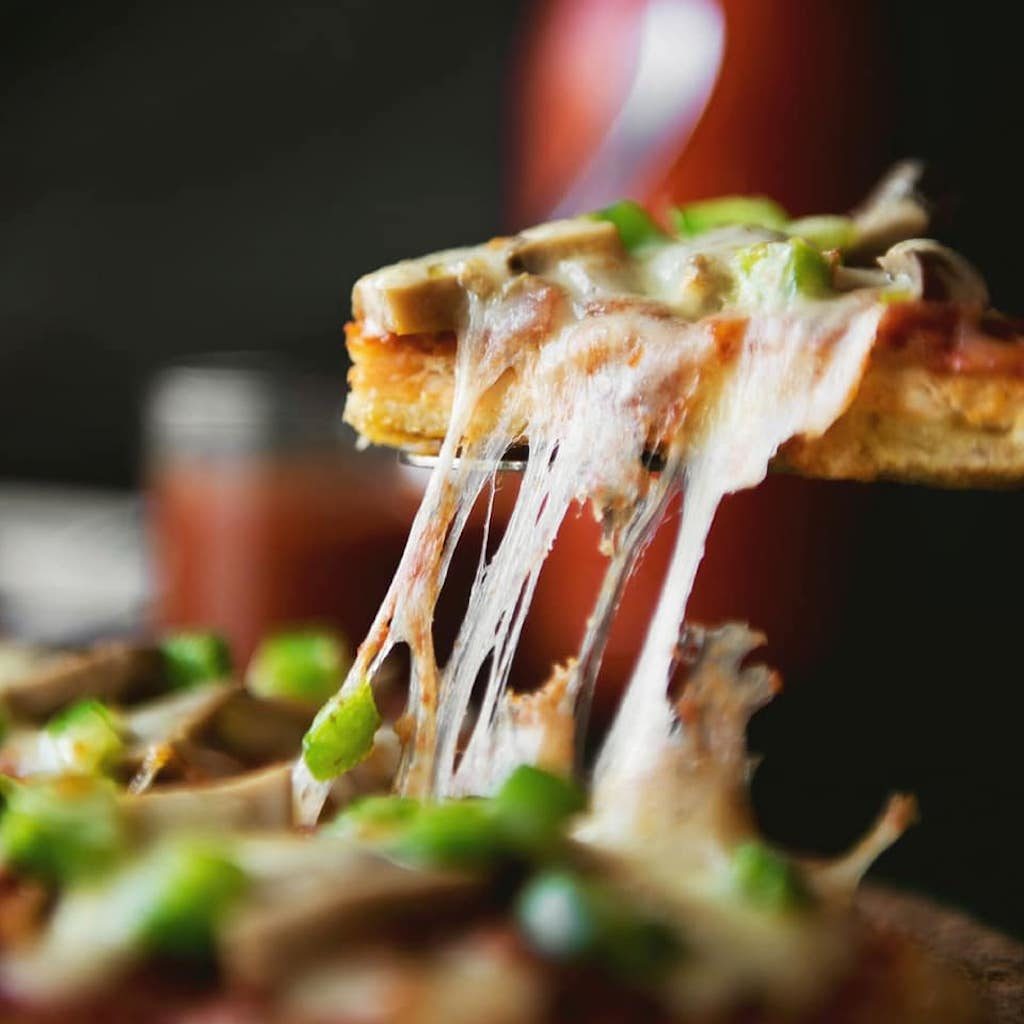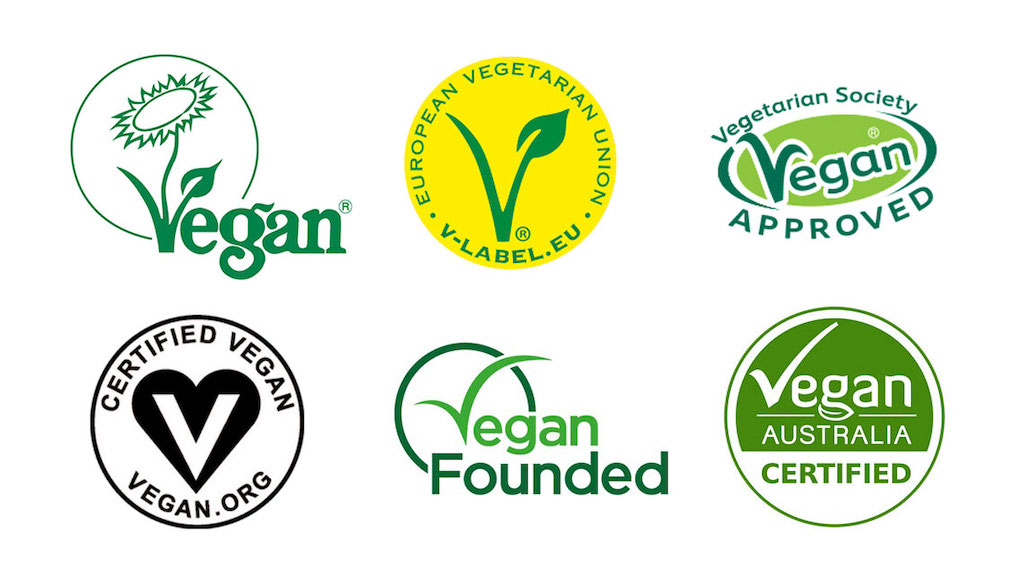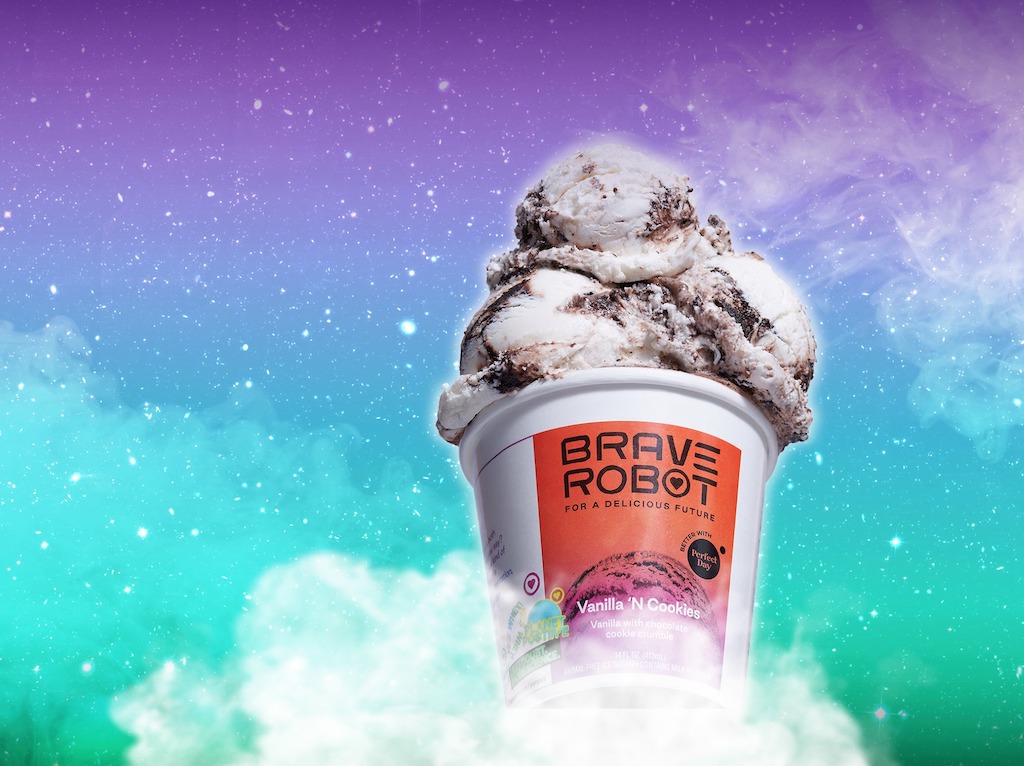4 Mins Read
The food on your plate is changing. And it’s not just the advent of plant-based eating, which is suddenly everywhere, from Michelin-Starred tables to fast-food chains. We are entering a brand new era of slaughter-free menus and products, which includes everything from mycelium steak to cell-cultured seafood to precision fermentation ice cream. But are these foods vegan? Well, it’s complicated.
We spoke to Irina Gerry of Change Foods, a precision fermentation food tech startup that creates animal-free dairy products like cheese, about her thoughts on the question. Prior to joining Change Foods as their CMO, Gerry led major product launches on Silk and So Delicious brands at Danone North America, including Silk Ultra and So Delicious Plant-Based Cheese Alternatives, as well as multiple brand marketing initiatives, including the Progress is Perfection campaign.
According to Gerry, “the introduction of precision fermentation technology will challenge consumer’s understanding of the term ‘vegan’. Up until now, ‘plant-based’ and ‘vegan’ could basically be used interchangeably for food, with very few exceptions like sugar, which can be processed with bone char, and a handful of newer plant-based ingredients/flavours, which required animal testing to pass FDA safety approvals.” So, will the new kids on the alt-dairy block make us rethink the definition of ‘vegan’? Below, we ask Gerry all the questions on this important question.
What is animal-free dairy?
Precision fermentation technology allows companies like Perfect Day, Change Foods and Formo to produce bio-identical dairy proteins like whey or casein, without the use of animals. They do so by encoding dairy protein DNA sequence onto microorganisms, such as yeast or fungi, and then placing them into a fermentation tanks, much like those used to brew beer, where the yeast/fungi eats simple plant-based nutrients and sugars to grow.
During the fermentation process, these select microbes produce proteins that are identical to those found in cow’s dairy milk. These proteins are filtered into a pure milk protein isolate, that can be used to create our favourite dairy products- think cheese, yogurt and ice cream, without the use of animals. Even through the resulting products are animal-free and do not contain lactose, they do contain dairy protein.

Is animal-free dairy vegan?
If we look at vegan lifestyle as an ethical stance of not wanting to consume or use any animal products, the answer would be yes, since no animals are involved in producing animal-free dairy. That being said, consumer motivations for purchasing vegan products have expanded beyond those who do so for ethical reasons, and also include those who are motivated by health, allergies and environmental concerns.
Those advocating for the removal of animals from our food system for environmental or ethical reasons may find animal-free dairy products to be an inspired and amazing solution, one that will help bring large swaths of the population to the animal-free food world. Others, who adhere to a whole-foods plant-based diet or who use vegan products as an allergenicity signal, may not feel the same way.
The discussion of whether or not these products are vegan-friendly or suitable for those following the vegan lifestyle is quite different from the discussion of whether they ought to be labeled vegan on their packaging. While consumers’ definition of veganism may evolve as more and more animal-free products come to market, educating consumers on precision fermentation technology and allergenicity of bio-identical dairy proteins is needed as we embark on this journey.

What about vegan certification?
While some companies state that their products are vegan, others choose to obtain a formal Vegan Certification, to signal adherence to a specific set of standards. Two of the best-known organisations that provide vegan certification include the U.K.-based Vegan Society with their Vegan Trademark seal and the U.S.-based Vegan Action and their Certified Vegan seal.
Do animal-free dairy products meet these standards? Both organization’s standards would exclude products that “contain animal-derived genes” but this particular standard may be tricky to interpret for this new class of animal-free products. While cell-cultured meats like Eat Just’s cultured chicken and Memphis Meats cell-cultured meat do start with a small biopsy of a live animal, products produced via precision fermentation, like animal-free whey, are created from a digitized database of milk proteins (a line of code for a particular amino-acid sequence) and no animals are involved in the process, not even for a swab or biopsy. The code does indeed come from the sequencing a cow’s genome. However, the original animal is far removed from the final product and the definition of “animal-derived” seems to be getting blurrier at this stage.
I would guess that 99% of consumers today would not dive into this level of nuance, and that majority of vegans who are motivated by animal welfare or sustainability would welcome animal-free dairy into their lives. This conversation is only just beginning and there doesn’t seem to be a simple answer. We should engage in dialogues with a range of stakeholders, from consumers and brands to advocacy groups and NGOs and focus on education around the benefits and nuances of this technology.
Editor’s Note: precision fermentation proteins are also known as recombinant proteins, the scientific term to describe the technology of creativing dairy proteins in microorganisms.
Lead image courtesy of Brave Robot via Facebook.





